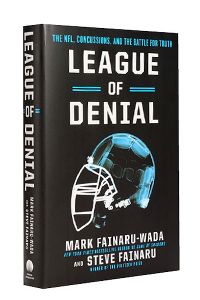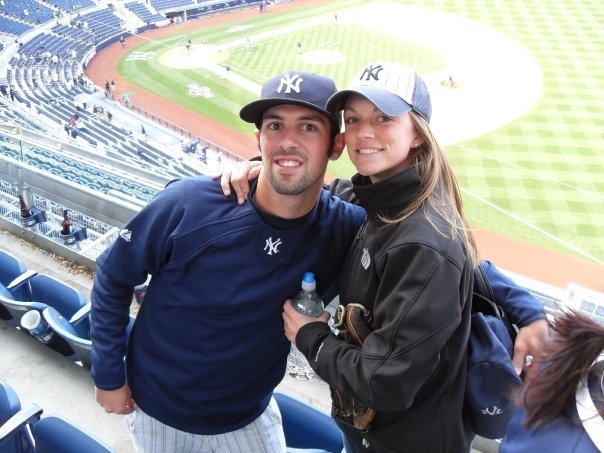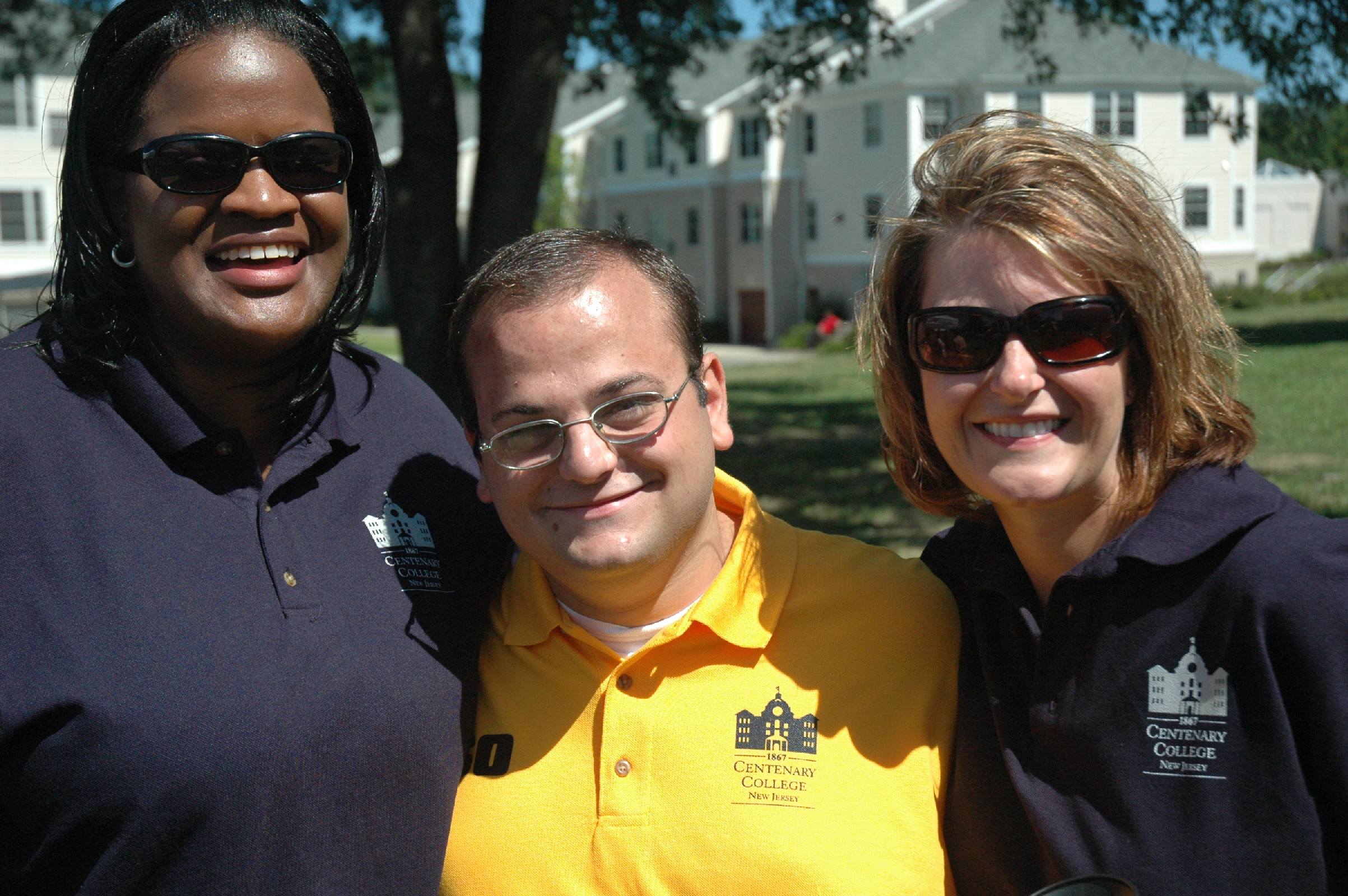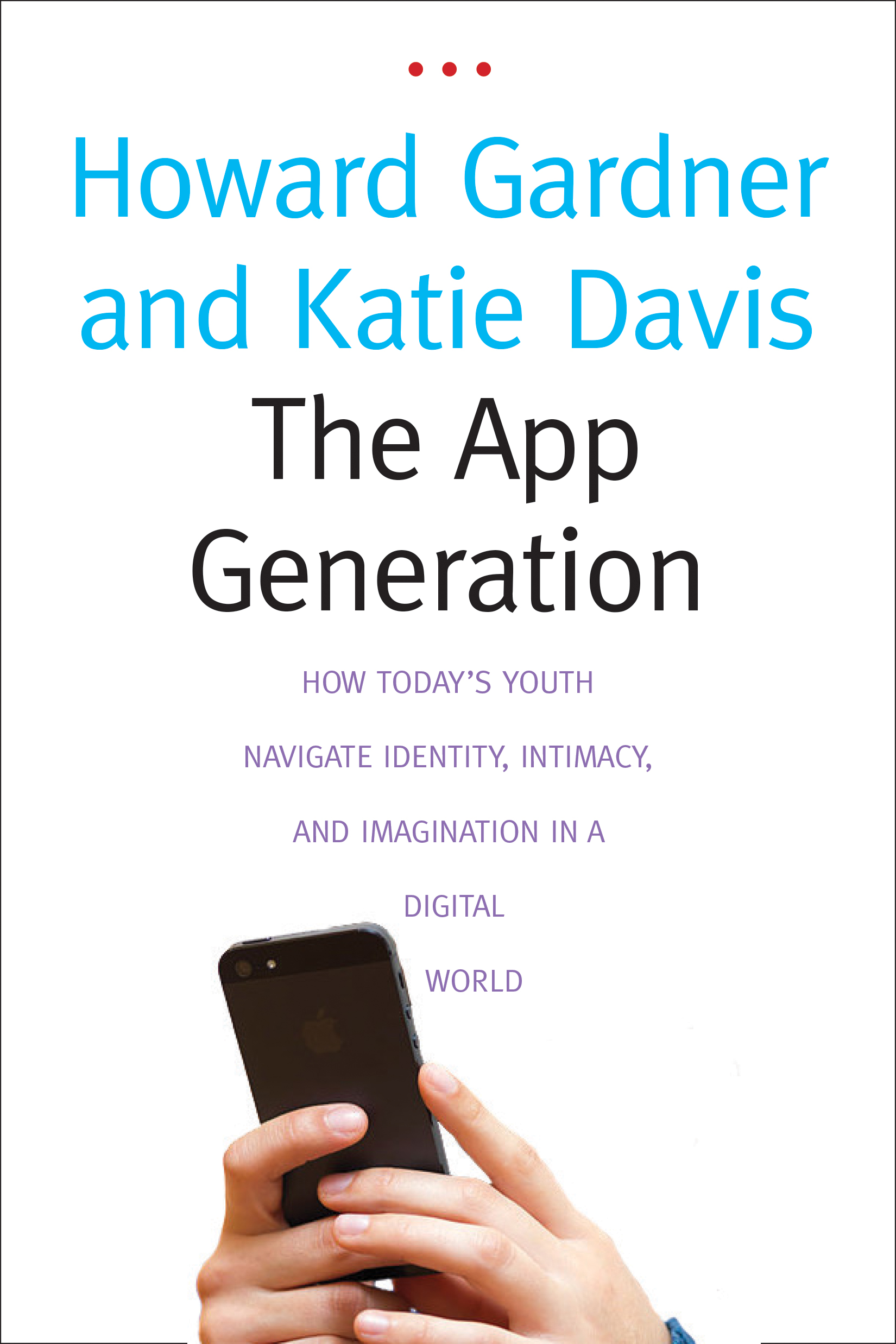 At first glance, Mark Fainaru-Wada and Steve Fainaru's League of Denial seems to be a book about the NFL's insufficiently addressed concussion problem. And it is, in the most literal sense, about that. But it's also about the role of passionate and knowledgeable people in speaking up to create change. As addressed in the introduction, the NFL is a $5 billion enterprise. An organization that massive doesn't turn any more quickly than a full-speed cruise ship would, and it takes a lot to compel each to stop and take notice. But with the right ingredients, a select few individuals were able to make a gigantic corporation pay attention to something very serious. And their essentials for success could apply to your organization as well, even if it's not as big. I strongly encourage you read the book, even if you have little interest in football- you'll learn a lot about the power of conviction, talent, and the stories of iconic figures in society.
Say you have something at work that doesn't feel right. Maybe it's a process that needs updating, or a transaction that looks a little fishy. You might not even have proof. It might just feel wrong. That is what we call a hunch, and it was essential to Dr. Bennet Omalu, the Nigerian coroner who presided over the autopsy of former Pittsburgh Steeler and Kansas City Chief Mike Webster. In 2002, Webster reportedly died of heart failure at 50. All prior test results had confirmed this, and there was therefore, scientifically, allegedly no reason to look at his brain. But Omalu felt like something could be there. He ordered that his assistant "fix" the brain, meaning prepare it for dissection. What he found upon further exploration set off a firestorm of conversation about the nature of football, its contribution to depression and dementia, and the NFL's role in warning players about the risks associated with the sport.
At first glance, Mark Fainaru-Wada and Steve Fainaru's League of Denial seems to be a book about the NFL's insufficiently addressed concussion problem. And it is, in the most literal sense, about that. But it's also about the role of passionate and knowledgeable people in speaking up to create change. As addressed in the introduction, the NFL is a $5 billion enterprise. An organization that massive doesn't turn any more quickly than a full-speed cruise ship would, and it takes a lot to compel each to stop and take notice. But with the right ingredients, a select few individuals were able to make a gigantic corporation pay attention to something very serious. And their essentials for success could apply to your organization as well, even if it's not as big. I strongly encourage you read the book, even if you have little interest in football- you'll learn a lot about the power of conviction, talent, and the stories of iconic figures in society.
Say you have something at work that doesn't feel right. Maybe it's a process that needs updating, or a transaction that looks a little fishy. You might not even have proof. It might just feel wrong. That is what we call a hunch, and it was essential to Dr. Bennet Omalu, the Nigerian coroner who presided over the autopsy of former Pittsburgh Steeler and Kansas City Chief Mike Webster. In 2002, Webster reportedly died of heart failure at 50. All prior test results had confirmed this, and there was therefore, scientifically, allegedly no reason to look at his brain. But Omalu felt like something could be there. He ordered that his assistant "fix" the brain, meaning prepare it for dissection. What he found upon further exploration set off a firestorm of conversation about the nature of football, its contribution to depression and dementia, and the NFL's role in warning players about the risks associated with the sport.
It's not uncommon to have situations at work that we suspect are a little off. But many people brush them aside, assuming it's not their place to further investigate, or even wish away the thought for fear of what they might find. Without Omalu's conviction to dig deeper into his hunch, discussion on the NFL's concussion crisis would have taken far longer to surface. What injustices, danger, or inefficiencies could your hunch uncover? And on a lighter note, what solutions could you find once a problem or concern in clearly identified?
Many of Omalu's initial allies were fellow scientists- neuroscientists, psychologist, internists, and others in the medical community. But an unlikely ally surfaced for Omalu's cause- a sports agent.
For those who have seen the 1996 film Jerry Maguire, you may recall a scene where a hockey player wakes up in a hospital, surrounded by his family and Jerry. He is clearly suffering from concussion symptoms, but Jerry seems undeterred in his efforts to get him back on the ice. After he leaves the room, the hockey player's young son follows him and admonishes him for taking his dad's safety so lightly. This interaction seems to spark a change in Jerry, and from there he creates his famous "mission statement" that takes his career down a new path.
What many may not know, however, is that this scene is based in some truth. Leigh Steinberg, sports agent for legendary players such as Troy Aikman, is the actual agent upon which some of Jerry Maguire is based. The scene is based on an interaction that Steinberg had in 1993 with Aikman after the latter awoke. Aikman asked Steinberg, "Leigh, why am I here? Did I play? Did I play well?" Steinberg answered his questions, and let him know that his phenomenal play would take his team to the Super Bowl the following week. He answered them again, five minutes later, when Aikman asked him again with no recollection of the prior exchange. And again, five minutes after that, when Aikman's short term memory was clearly continuing to fail him. "It terrified me," Steinberg confesses in the book. "I saw how tenous the bond was between consciousness and dementia and realized that this young man who I cared for and loved was sitting alone as a result of a concussion and we had no idea what the consequences were."
By Sunday, Aikman was coasting through the Cowboys' 30-13 blowout of the Buffalo Bills. A year later, he remembered almost none of it.
For Steinberg, it wasn't much of a victory. He had become convinced that he was guiding his clients to ruination. He had reached his own turning point.
"I'm an enabler," he thought to himself. "That's all I'm doing."
From here, Steinberg dedicated himself to the cause of learning about the long-term effects of concussions, and later spreading the word about these dangers to players across the League. While the reviews of his informational sessions about these concerns were mixed (and weighed heavily on the negative), he didn't give up. His dedication to stopping the enabling in the League around this issue pushed him to keep researching, keep speaking up, and providing credibility to later occurrences of similar symptoms and illnesses.
Could you, conceivably, rally all of your strength around a cause to which you're not committed? Maybe. But it's far easier when you feel a natural passion for the cause at hand. This doesn't always come naturally, as one might expect when in the workplace. But in those instances, I recommend a strategy from Patrick Lencioni, author of The Three Signs of a Miserable Job. According to Lencioni,
Everyone needs to know their job matters, to someone. Anyone. Without seeing the connection between the work and the satisfaction of another person or group of people, an employee simply will not find fulfillment. Even the most cynical employees need to know that their work matters to someone [...]*
Should you be called to be a change agent for something you don't fully buy into, keep the above paragraph in mind. When you do your job well, who benefits? When you do it poorly, who does it hurt? And, for the record, the answer to both of those is allowed to be you! If that's not enough (and that's okay too), think harder about what you do, and who ultimately sees the end product. It'll help you find purpose in the change you're working to create.
Now you have a hunch that something needs to change, and you've summoned the energy with which to attack the issue at hand. What else is needed? The right environment to plan your approach. For the scientists and advocates for NFL head safety, this place was Pittsburgh. More than being the home of Primanti Brothers sandwiches and comedian Steve Byrne, and more than the setting for Flashdance, Pittsburgh was where a great deal of support for the research done on concussions came from. When a pair of doctors named John Maroon and Mark Lovell joined forces in 1993 to create a head injury evaluation test (which later evolved into the ImPACT test used on sidelines today), twenty-seven Pittsburgh Steelers were among the first guinea pigs for the protocol. And while they were not greeted with open arms any more than the other individuals we've mentioned previously, the environment they were in allowed them to look more closely at some of the concerns they had. Further, when players did start to speak up about some of these concerns, several of them came from Pittsburgh (including the man whose damage-addled brain set off the firestorm around concussions, Mike Webster). These players had seen the deterioration of their colleagues and friends, and had a greater awareness of some of the causes. They used that influence not to stay silent, but to speak up about the dangers that their peers in the 29 other NFL cities were subject to.
It is a distinct possibility that the environment in which you work will not be the one that supports you as you attempt to create change. Sometimes those around you are prepared to move toward a new way of doing things. But sometimes they're not. "What then?", you may be asking.
To that, I would encourage you to find an alternative support system. Coffeehouses and bookstores are full of people with big ideas- if you can't work toward change at the office, consider carving out time for yourself to frequent those places. They're havens of creativity, and you'll never starve in one, either! And what of human support systems? Maybe you have friends who work in other industries that can ask you the tough questions, or even the silly ones that you might not think to address because of all the "assumed knowledge" we sometimes take for granted when we're in an insular environment. Or maybe you have friends who work in similar environments who have seen changes such as the ones you're proposing work, and can provide guidance on how to propose it. Or maybe your support comes from family members who unfailingly carry pompoms as you struggle to find the value in your work. In all of these instances, you can find the push to keep working for what you believe in from the people around you, not just your boss or immediate colleagues.
Change can be hard to create, especially when it seems the weight of the organization is moving away from what you're hoping to accomplish. But there are ways to make it happen. By following your hunches, finding and reinforcing your dedication, and working in an environment supportive of your work, it'll be a little bit easier to speak up about what you see, and hopefully change will be on the way.
* Lencioni, P. (2007). The three signs of a miserable job. Retrieved 30 Mar 2014 from http://www.tablegroup.com/books/signs/media/Three_Signs_Model.pdf
 Today I would like to introduce a couple who has found their niche and are completely following their passion: Laura Chegwidden Jacobs, a close friend of mine from high school, and her husband Joe Jacobs. Over the last three years, I have seen Laura and Joe take something they love and turn it into a career path.
Today I would like to introduce a couple who has found their niche and are completely following their passion: Laura Chegwidden Jacobs, a close friend of mine from high school, and her husband Joe Jacobs. Over the last three years, I have seen Laura and Joe take something they love and turn it into a career path.













